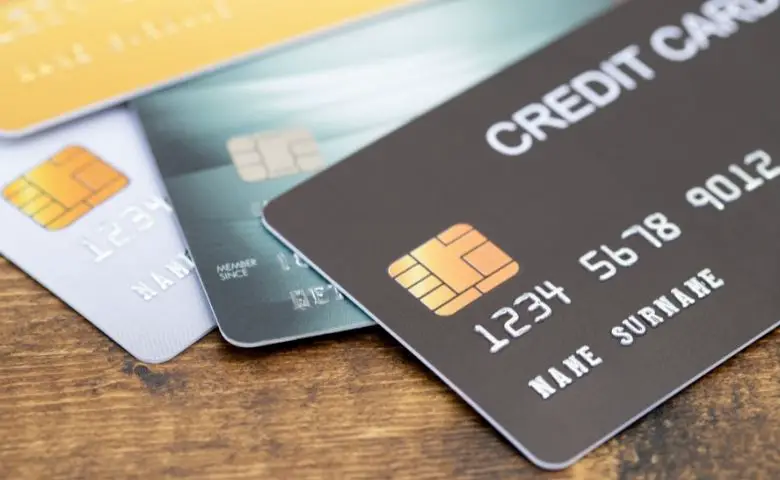As someone who’s just trying to make the most of their teenage years, you might think about money management as something that you can always teach yourself later in life when you’re a little bit older.
But the truth is; these are actually the best years to learn about personal finance.

Money Management Tips for Young adults
The earlier your teens develop and cultivate good money habits, the more adept they’ll be at establishing their own financial independence.
These money management for teens tips and best practices will help set you up for financial success:
1. Live Within Your Means
It’s never a good idea to spend more than you have. It is one of the reasons why a lot of people are trapped in a debt cycle and something you should avoid at all costs.
Always exercise self-control when it comes to your spending. Getting caught up in trends and comparing yourself to others can easily tempt you into spending money you don’t have.
Instead of blowing your allowance over trivial things and trying to keep up with your friends, think about the future instead.
Practice mindful spending now, so you won’t have to struggle with your relationship with money when you’re older. Also, the more responsible you are with your purchases, the more money you’ll have for things that matter.
2. Set Financial Goals
If you don’t have a plan for your money, you’re more likely to waste it. As a result, you’ll have to work harder and longer when you do need to save for something.
Rather than making impulse purchases, try to find out how much money you’ll need for significant purchases or life goals and then categorize them into short-term, medium-term, and long-term goals.
Do you wish to travel before starting university? Learn to drive? Buy your first car? Figure out how much they’ll cost you and focus your efforts on making them a reality. Financial literacy for teens is very important for their future life.
3. Create a Budget
You need to learn how to make a budget because budgeting is a critical aspect of effective money management. Every month, prepare a budget that includes all of your costs and expenses, and see how it fares with your allowance (and income, if you have one).
As a teenager, the odds would be that you’ll find budgeting much more attractive when done through an app rather than on paper or an excel spreadsheet. A budgeting app on your phone will also make things much easier and serve as a constant reminder to watch your spending.

Once you’ve established a budget, the most important part is to stick to it. Conduct a comparison of your goals and expenditures at the end of each month to see how you’ve done. If you’ve spent beyond your budget, that’s okay. Just try to do better next month.
4. Track Your Spending
Maintaining a budget is more difficult than it sounds, but it’s necessary if you want to know where your money is going.
Back in the day, most people would control their spending by transacting in cash only. However, in the age of card and mobile payments, this is very unrealistic and impractical. What you can do instead is to download a finance app and keep track of all your expenses, regardless of how small.
The great thing about these expense tracker apps is that most of them do not only track where you spend your money but also use AI and data visuals to give you a clearer insight into spending habits and what you’re likely to overspend on.
For example, spending a few dollars on coffee a few times a week might not seem like a big deal, but seeing the monthly total could be enough to convince you to change your ways.
5. Find Ways to Make Money
Nowadays, teenagers can earn money in a variety of ways. If you’re of legal age, you can apply for part-time work or start a side hustle that’s in line with your skills and interests.
If you enjoy working with children, you can work as a babysitter. If you love animals, you can start a pet walking service. If baking is your thing, you can make cookies or muffins and sell them online. The possibilities are almost endless.
Having a job that pays allows more room for spending in your budget while you gain valuable life experience. It’s relatively easy to develop a sense of financial responsibility once you realize how difficult it is to earn money but so easy to spend it.
6. Pay Yourself First
One of the most common mistakes in money management is to spend first and then attempt to save what’s left. Before you know it, you’ve spent everything and have not saved anything.
To avoid overspending, do the opposite: set money aside first for savings and then spend the remainder. Regardless of where your money comes from—an allowance, a gift, a side-hustle, or a job—the first thing you should do is put a certain amount towards your savings. The sooner you begin saving, the more funds you will have on hand for rainy days.
7. Open a Savings Account
If you’re looking to set money aside and save for the future, opening a savings account is a good idea. A savings and checking account will not only help you maintain a healthy balance between saving and spending but will also teach you the fundamentals of personal banking, thereby increasing your financial literacy.
Make sure to put your savings in an interest-bearing account. If your objectives are longer-term, you may want to consider savings bonds or even investments. Starting early will allow compound interest more time to work its magic and grow your money.
8. Educate Yourself About Debt
Many people struggle with debt for the rest of their life. That being said, as you prepare for your college years and adult life, it’s critical to be aware of the dangers of using debt, such as credit cards and student loans, to fund your lifestyle.
Access to these types of debt can make it easy to spend money carelessly. And, if you’re not careful, you risk digging a deep financial hole that will take years to climb out of—all while accruing significant interest.
While not all debt is bad, it is best to avoid it whenever possible. The most effective way to do this is to reduce your expenses. Examine your budget and identify areas where you can save, so you have money on hand for emergencies and bigger purchases.
9. Start Building Your Credit History
Maintaining a checking or savings account is an excellent way to begin building a financial history. However, these accounts do not help you in establishing credit. You need to take additional steps to build a positive financial reputation that will contribute to a higher credit score—which will prove useful when it’s time to obtain student loans, finance a new car, or even purchase a home.

Your parents can assist you in establishing a credit history before you venture out into the world on your own. Start with a mobile phone plan that’s separate from your parents and make sure to pay your bills on time. You can also ask parents if they can add you as an authorized user to their credit card or open a starter credit card for yourself.
To avoid worrying about overspending, limit your credit card use to one or two categories of purchases per month, such as gas and groceries. For your peace of mind, set up automatic payments to ensure that your balance is paid in full every due date.
10. Learn About Investing and Compounding Interest
Rarely do people become wealthy solely on the basis of their salaries. Long-term prosperity is derived from financial literacy, savings, and smart investment decisions over time. While credit scores, retirement savings, and investing may appear to be distant financial concerns, they are much closer than you realize.
When it comes to saving for the future, compound interest is your best friend. To make the most out of compound interest, you should begin to invest early, invest consistently, and strive for a reasonable rate of return.
One thing to remember about investments, though: Investment products such as stocks, bonds, real estate, etc. may generate higher returns over time, but they also carry with them significant risk. Learning as much as you can about your investment choices is the key to making wise investment decisions.
Start Your Journey Towards A Better Financial Future
So, here are my few tips on how to save money as a teenager without a job. While these teenage money management tips may appear relatively simple, getting started is the toughest part. It is never too early to begin developing sound spending and saving habits.
The best way to secure your financial future is to educate and equip yourself with the necessary tools for success.
You’re still young. You have the advantage of time and numerous opportunities to develop sound money management skills and healthy financial habits that will benefit you for the rest of your life. Make the most out of it.
Related Articles:
10 Great Money-Saving Tips To Save You Hundreds
17 Best Frugal Living Tips For Moms In 2022
35 Best Side Hustle Ideas For Moms You Can Start Now In 2022
Financial Advice For Married Couples To Regulate Finances Mutually
Don’t Forget to pin it for later!

10 Insanely Valuable Money Management Tips for Teenagers
Samantha Green
Samantha Green is the Content Marketing Strategist for the MCA award-winning app, BusyKid, the first and only chore and allowance platform where kids can earn, save, share, spend, and invest their allowance. A mom of two, she enjoys spending time with her kids and reading books to them.

Having a savings account is a great idea. I totally agree that to maximize your savings, you can choose investing it or putting it on an interest-bearing account so your money isn’t just being stocked. Still, you need to be meticulous in picking the right company for it.